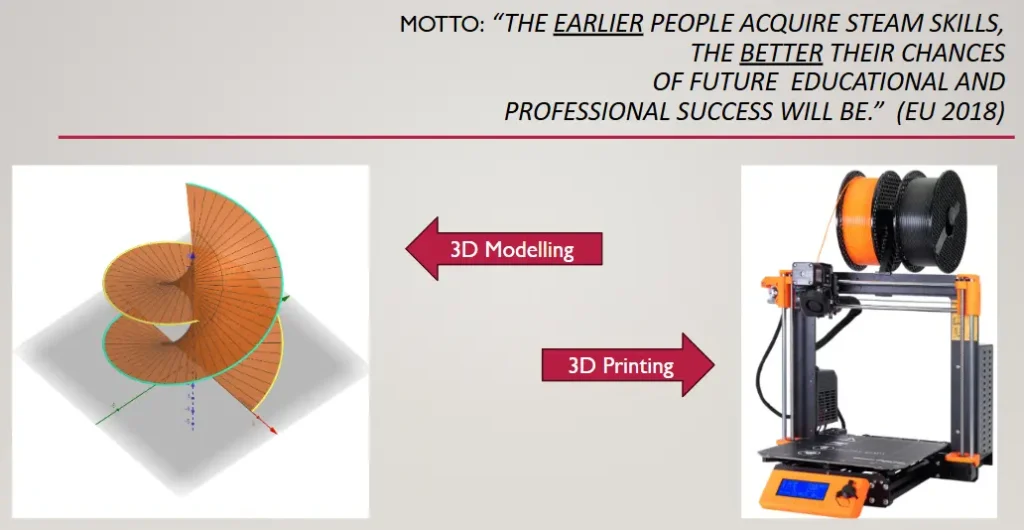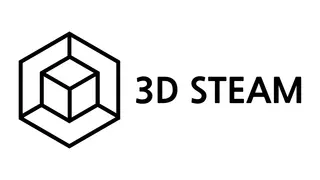The 3D STEAM project
Accelerating STEAM-related Knowledge and Skills via 3D Modelling and 3D Printing

The 3D STEAM (full name Accelerating STEAM-related Knowledge and Skills via 3D Modelling and 3D Printing) is an ERASMUS+ project that enriches STEAM-oriented education by new concepts of 3D Modelling and 3D Printing. Its main aims are:
- Enriching education by including a variety 3D-printing practices and examples of their application;
- Facilitating students’ creativity and teamwork by solving real-life tasks, predominantly by those formulated and developed by the learners.
To achieve these goals, the project begins with the analysis of curricula and selection of appropriate topics. Based on them, a general didactical model with teacher guidelines will be developed. It should allow to present the task and its outcomes in a unified format in order to simplify interuniversity and interdisciplinary knowledge transfer.
A variety of 3D-modelling and 3D-printing tasks will be developed and applied. The project primarily addresses pre-service teachers but the modules will also serve for training of in-service teachers as well as for general public. The main aim is to develop their knowledge and skills necessary for:
- Designing, developing and implementing teaching approaches with 3D modelling within a variety of STEAM-based technologies and related transdisciplinary approaches;
- Promoting the learning to learn approach by “learning-to-do” tasks;
- Developing a MOOC to support both teacher training and STEAM learning;
- Facilitating access to STEAM-learning thinking among educators and learners of diverse fields of science, technology and arts;
- Supporting partner countries in their efforts to integrate STEAM approaches into their curricula and teacher training.
What do we want to achieve by implementing the project?
3D STEAM intends to assist future (pre-service) teachers to plan and carry out teaching activities with 3D modelling through a STEAM-based transdisciplinary approach. Its principal aim is to design and develop university teacher training courses fostering 3D modelling and 3D printing skills of pre-service teachers with a variety of technologies as well as to reach a wider audience and students through such approaches. In addition, support teacher training in the participating countries and beyond.
What activities will be implemented?
The project activities lead to design, development and implementation of various teaching approaches containing 3D modelling and 3D printing. They involve a variety of technologies and STEAM based transdisciplinary approaches for future teachers; promote the learning to learn approach by “learning to do” tasks enhancing creativity and production of 3D models; develop a MOOC to support both teacher training and school-based STEAM learning; facilitate equal access to STEAM learning; support countries to integrate STEAM approaches into their curricula and teacher training.
What project results and other outcomes do you expect your project to have?
The main results will have to format of tasks and activities for both in-class and online courses related to 3D modelling and STEAM based transdisciplinary education. To guarantee their applicability, all activities and resources will undergo test runs and be evaluated in pre-service teacher courses by participating country partners. A repository of these high-quality teaching and learning resources will be built including their MOOC variants. The promotion and dissemination of results to a wider audience belong also among the project activities.

